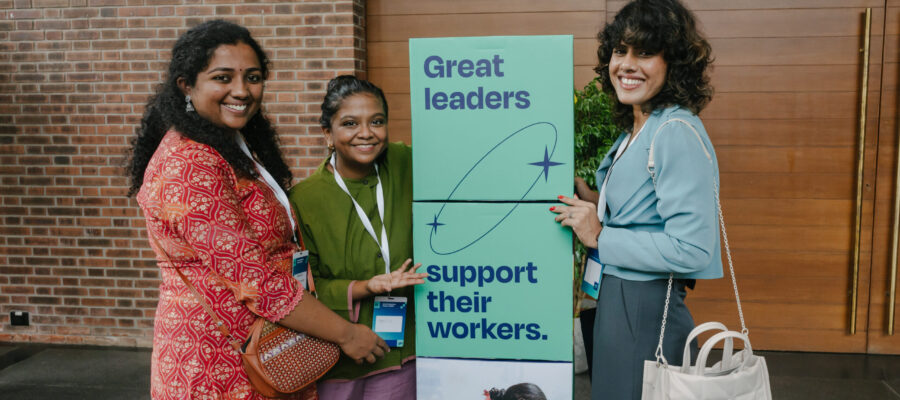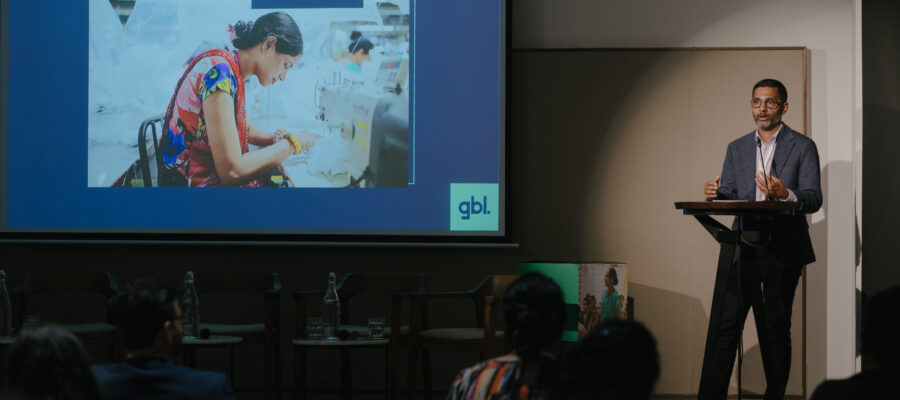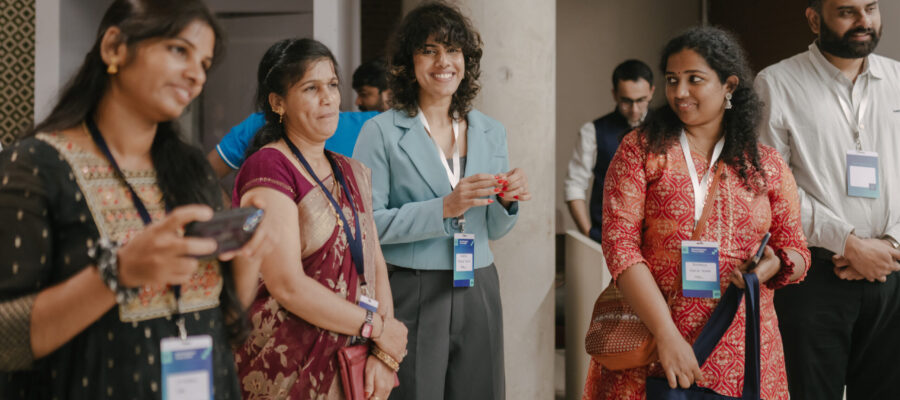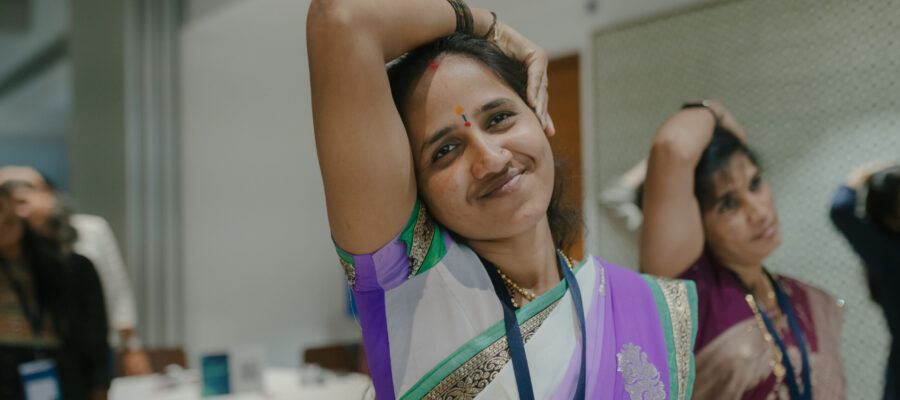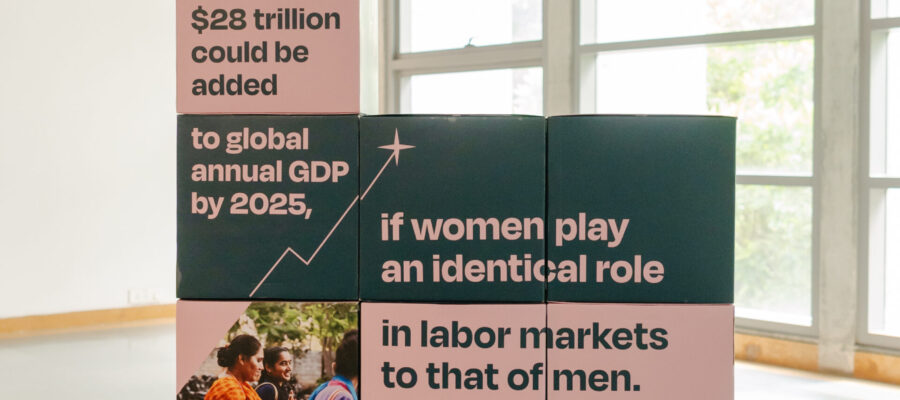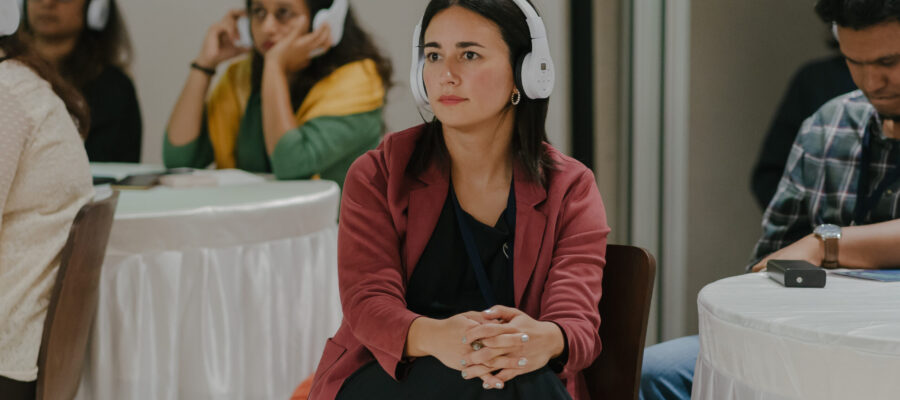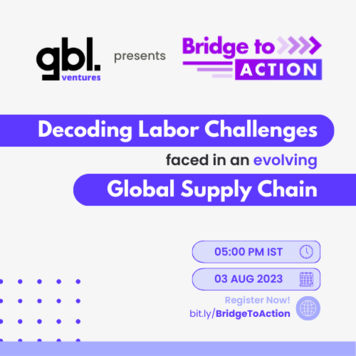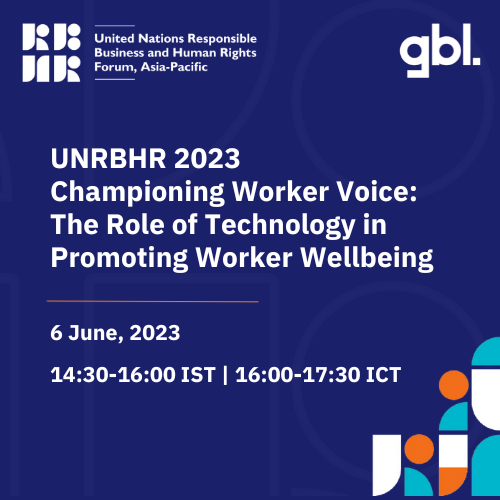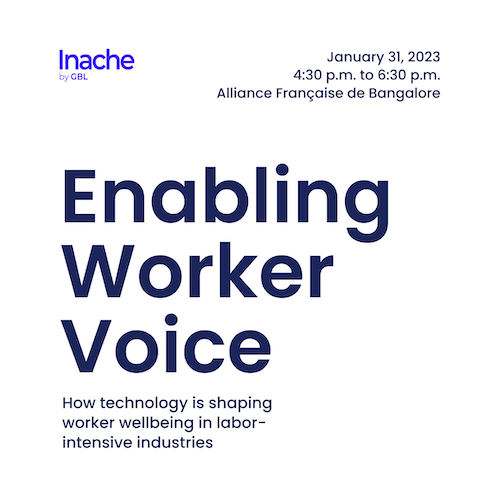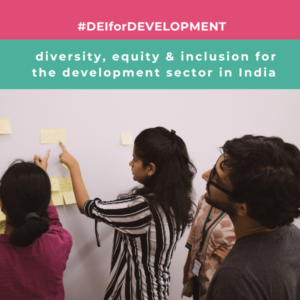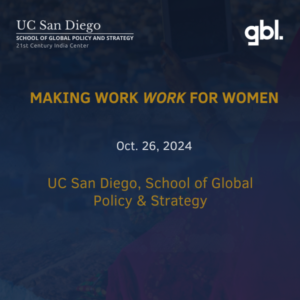Good Business lab hosted the first ever India edition of Good Business Forum: Redesigning the Bottom Line on Monday, 5th August, at the Bangalore International Centre. Redesigning the Bottom Line provided insights on how focusing on gender equity can significantly impact worker wellbeing, productivity, wages, and the firm’s bottom line. Drawing from insights of our portfolio of projects funded by the Bill & Melinda Gates Foundation, GBF brought together stakeholders from the public, private, and development sectors to share diverse perspectives on advancing social impact and business results together.
Among the distinguished attendees were representatives from the Bill & Melinda Gates Foundation, International Labour Organization (ILO), 3ie, Fashion for Good, RISE, GAP, ACT Grants, J-PAL, Azim Premji University, SLCP, Udaiti Foundation, Decathlon, Sansera, Shahi Exports, and many more.
| Title: Good Business Forum 2024: Redesigning the Bottom line
| Date: August 5th 2024
GBL’s Journey by Achyuta Adhvaryu

The day began with a keynote from our co-founder, Achyuta Adhvaryu, who emphasized the often-overlooked link between worker wellbeing and business success. He emphasized that workers need more than just a paycheck—they need holistic wellbeing support from their workplaces. While businesses recognize this need, they often view worker wellbeing programs as too costly. However, targeted impact measurement and calculating Social Return on Investment (SROI) can help secure the necessary funds for these programs.
Panel 1: Shared Impact Requires Business-Driven Solutions
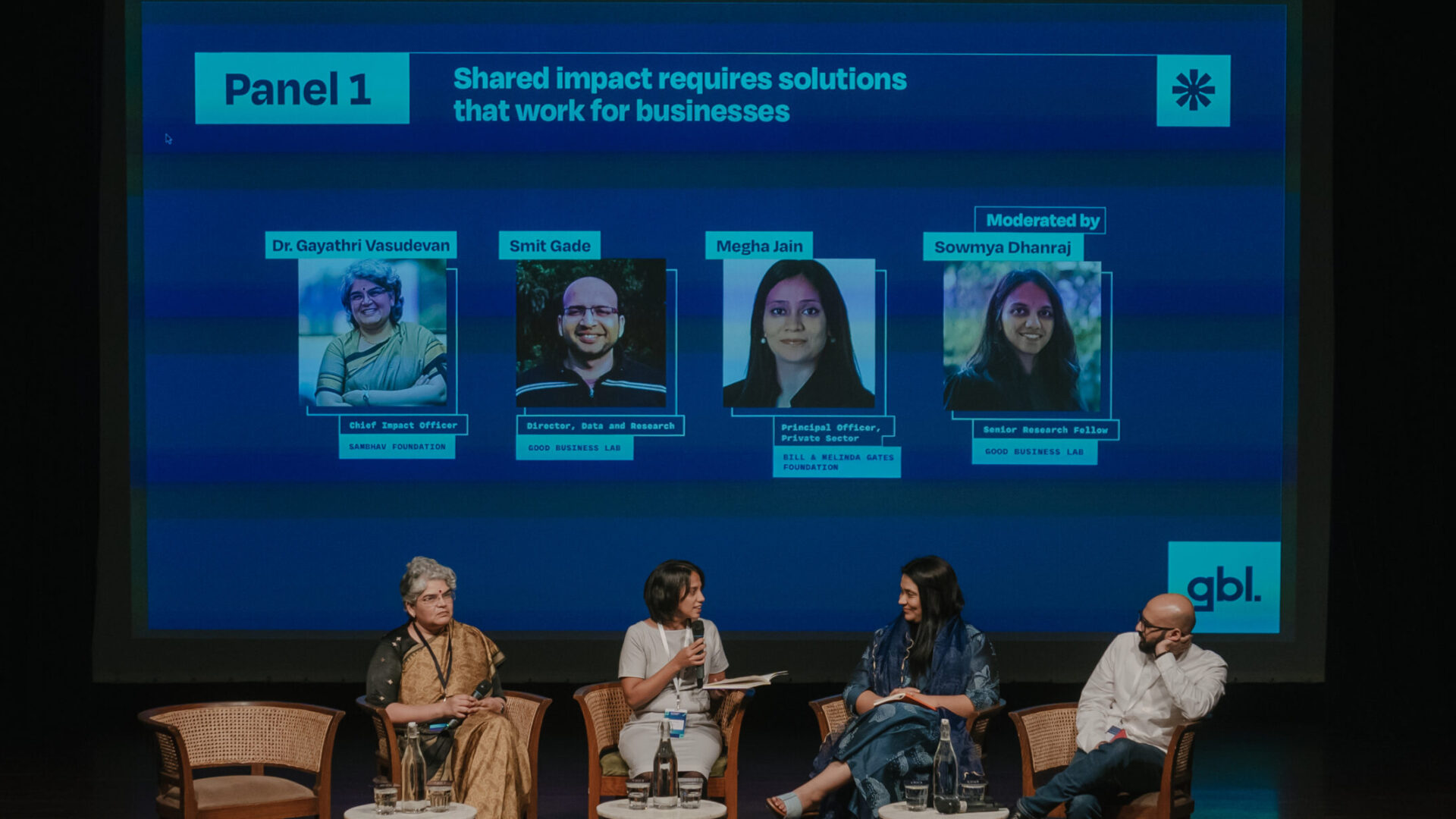
- Dr. Gayathri Vasudevan | Sambhav Foundation
- Megha Jain | Bill and Melinda Gates Foundation
- Smit Gade | Good Business Lab
Moderated by Sowmya Dhanraj, Senior Research Fellow at Good Business Lab,
- The panel emphasized the need for industry-specific approaches to advance women’s economic empowerment.
- The informal workforce, particularly migrant workers, was also highlighted, with a focus on improving health, housing, and skilling opportunities.
- The discussion underscored the importance of closing the gap in life skills for workers, particularly first-generation learners, and suggested that informal employers play a role in this.
Making Work Work for Women by Anant Nyshadham

Co-Founder and Chief Strategy Officer Anant Nyshadham discussed the barriers women face in both informal and formal work structures. Despite significant investments in microloans and skilling, women’s self-employment earnings have declined, and formal employment rates have stagnated. To address these issues, it’s crucial to redesign jobs to offer flexible hours, ergonomic support, and childcare resources. Awareness, social and mental health support, and career advancement pathways are also essential to making work truly effective and rewarding for women.
Panel 2: Co-Designing Workplace Interventions with Stakeholders
![]()
![]()
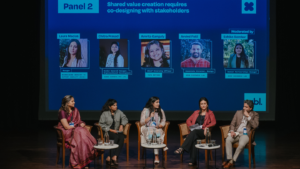
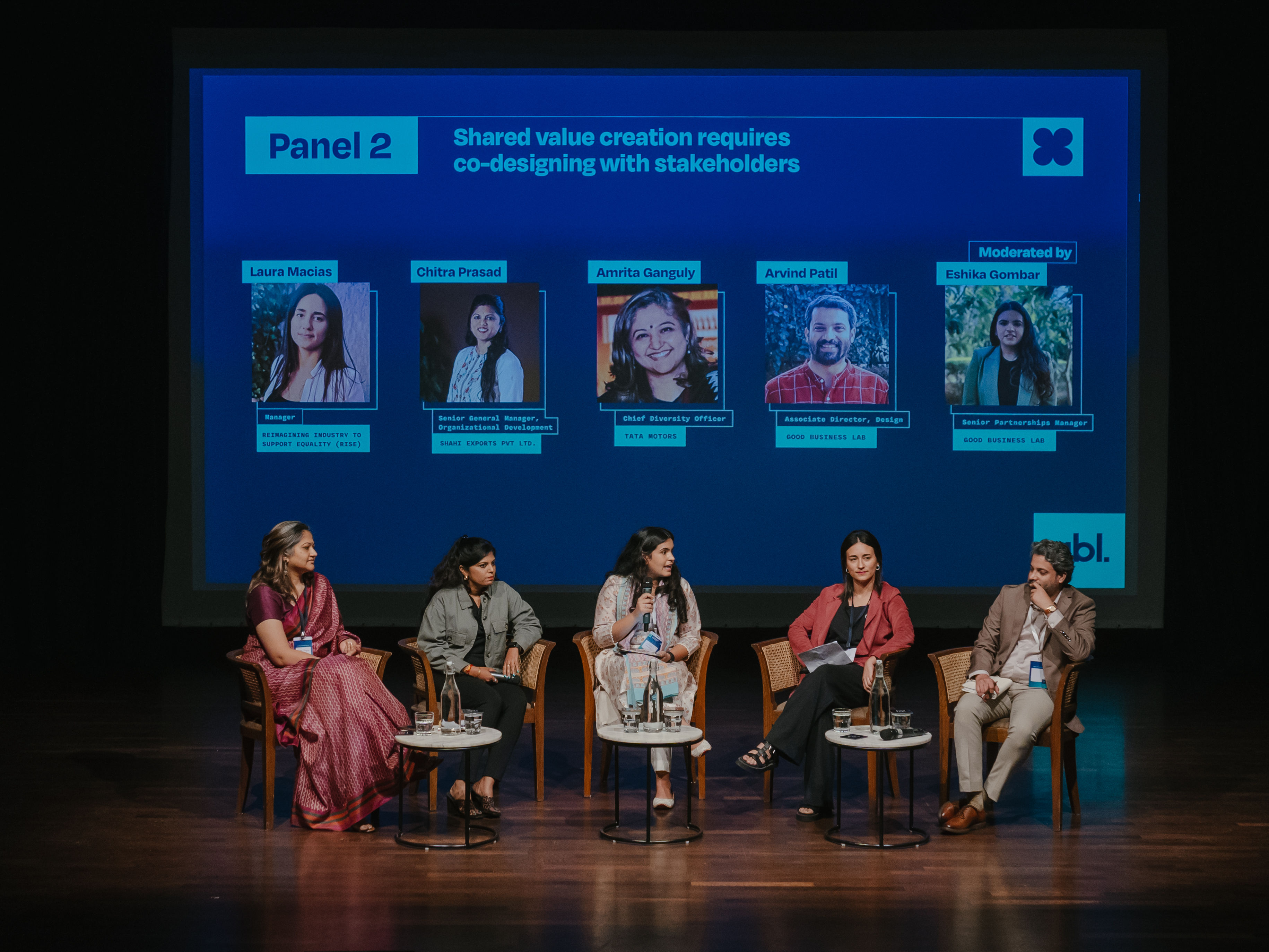
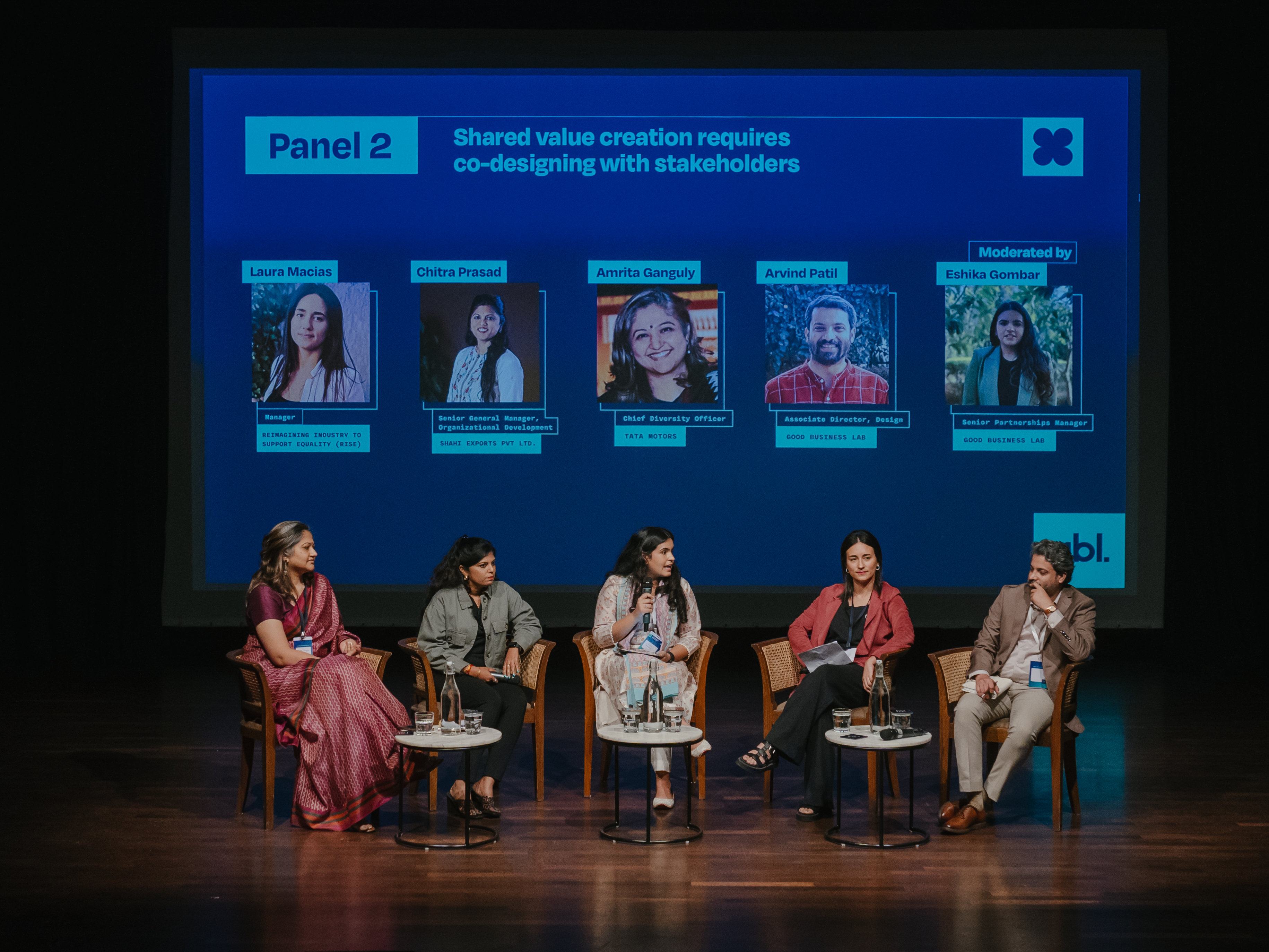

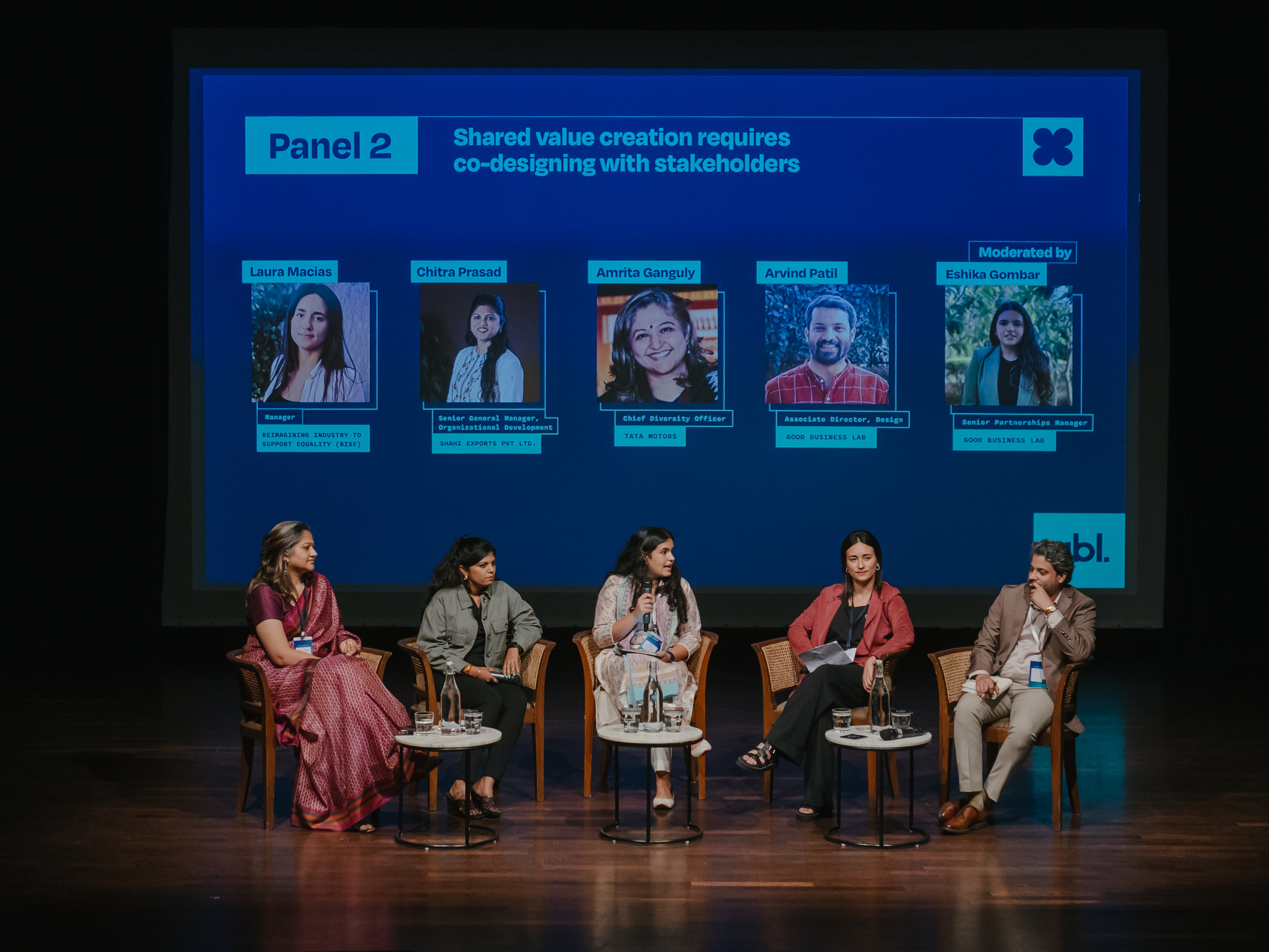 Laura Macias – Manager, RISE at BSR
Laura Macias – Manager, RISE at BSR- Chitra Prasad – Senior General Manager, Organizational Development at Shahi Exports Pvt. Ltd.
- Arvind Patil – Associate Director, Design at Good Business Lab
- Amrita Ganguly – Chief Diversity Officer, Tata Motors
Moderated by Eshika Gombar, Senior Partnerships Manager, Good Business Lab
- The panel emphasized the importance of co-designing workplace interventions with workers with a human-centric approach that prioritizes safety, trust, and skill development is crucial.
- Local context and partnerships with local organizations enhance these initiatives.
- In DEI strategies, top-level commitment and structured change management are vital. Data-driven insights, combined with worker feedback, help fine-tune programs and measure ROI, making it easier to justify these initiatives to stakeholders.
RISE Roadmap
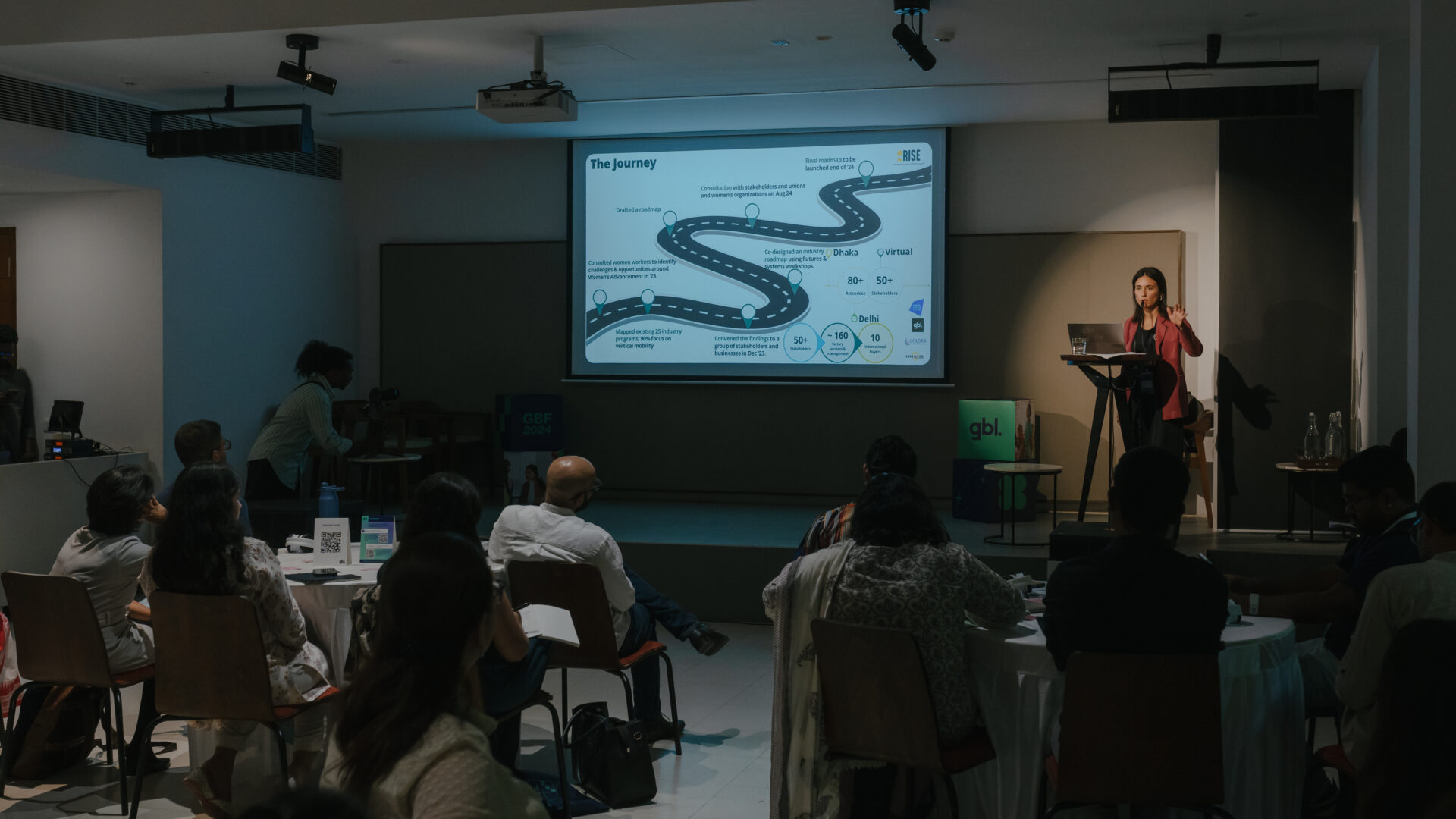
To enhance women’s advancement in the garment industry, businesses must establish clear career progression paths and address systemic barriers like occupational gender segregation. The vision includes women in leadership roles, the elimination of gender-segregated jobs, and fixing systemic problems. The roadmap calls for addressing unpaid care work, facilitating career progression, and designing transition plans for women leaving the industry. Businesses should prioritize these strategies to ensure resilient future operations, focusing on key indicators such as gender pay gaps and women’s representation in leadership roles.
Panel 3: Worker Voices Empower Business Transformation
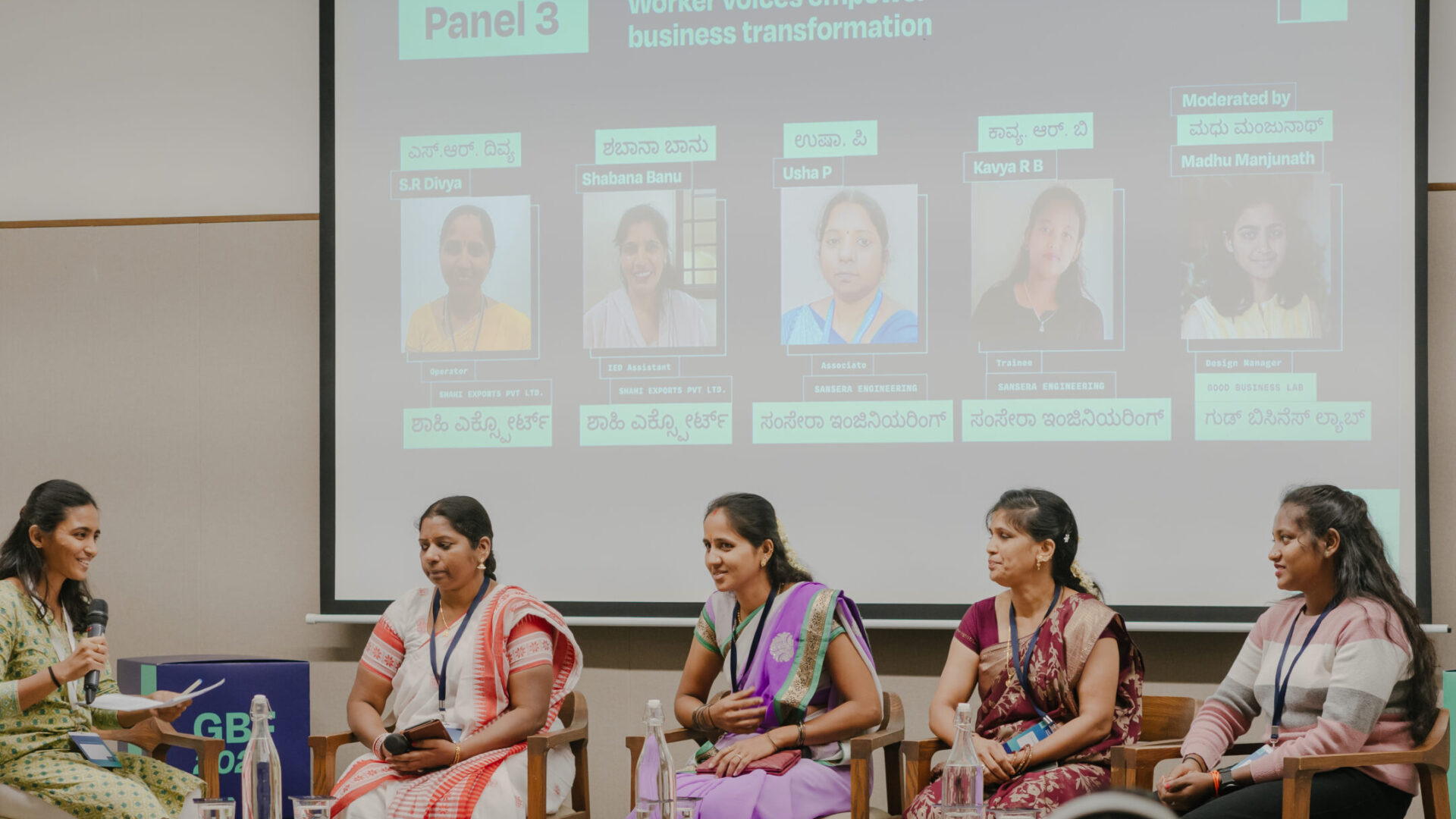
- S.R. Divya | Operator, Shahi Exports Pvt. Ltd.
- Shabana Banu | IED Assistant, Shahi Exports Pvt. Ltd.
- Usha P | Associate, Sansera Engineering
- Kavya R B | Trainee Workman, Sansera Engineering
Moderated by Madhu Manjunath, Design Manager at Good Business Lab
- The discussion also highlighted the importance of empathy and understanding from colleagues.
- Workers shared how employment has empowered them, increasing respect and decision-making power within their families.
- The session concluded with suggestions for creating women-friendly workplaces that encourage future generations of women to work and thrive in their careers.
Private Sector Perspective by Anant Ahuja
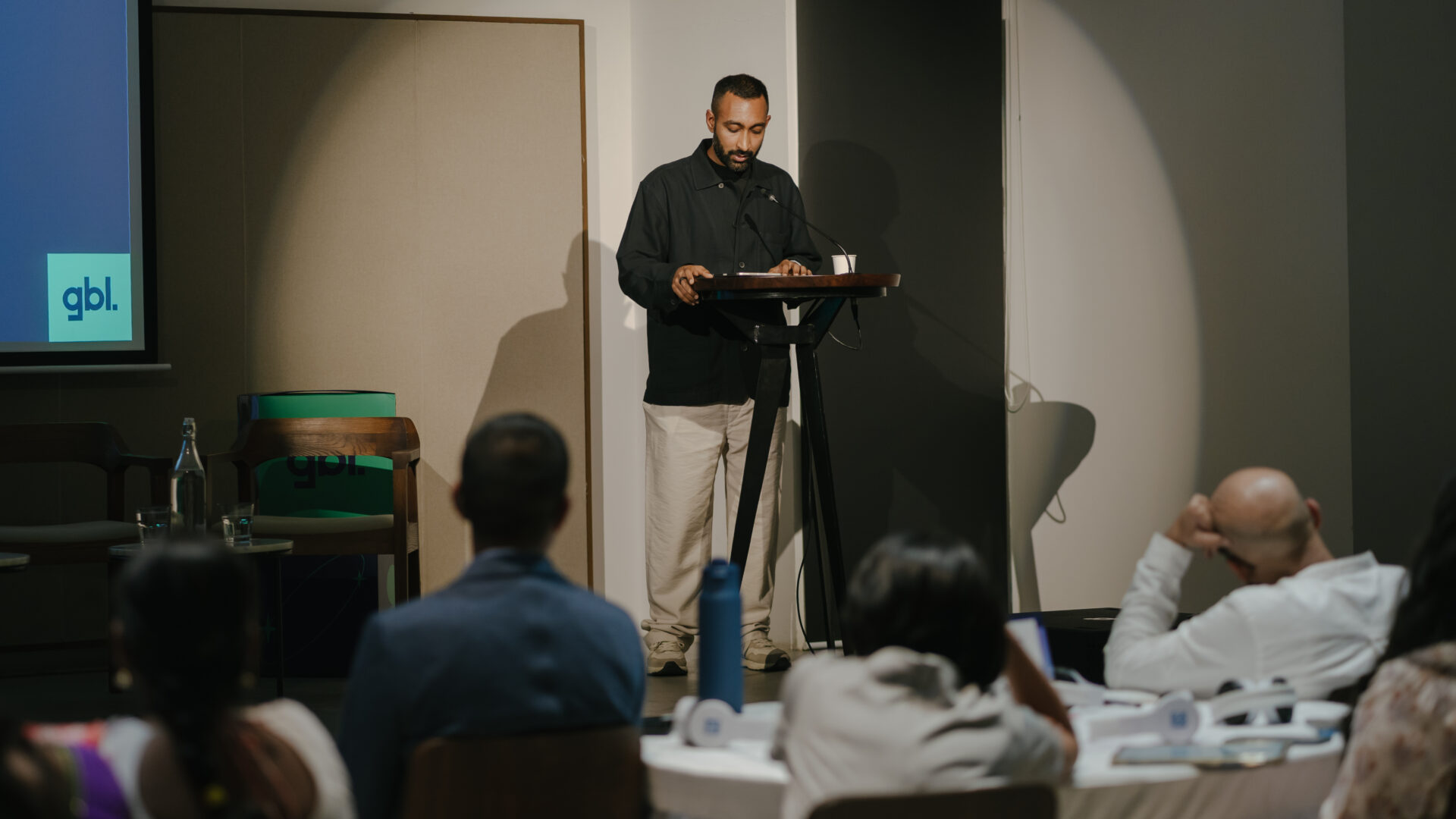
Anant Ahuja shared the inspiring story of his grandmother, who started as a sewing machine operator and helped build India’s largest apparel manufacturer and exporter. The success story highlighted the importance of supporting women in the workforce and empowering their participation.
Panel 4: Systemic Change Requires Robust Data, Not Just Regulatory Compliance
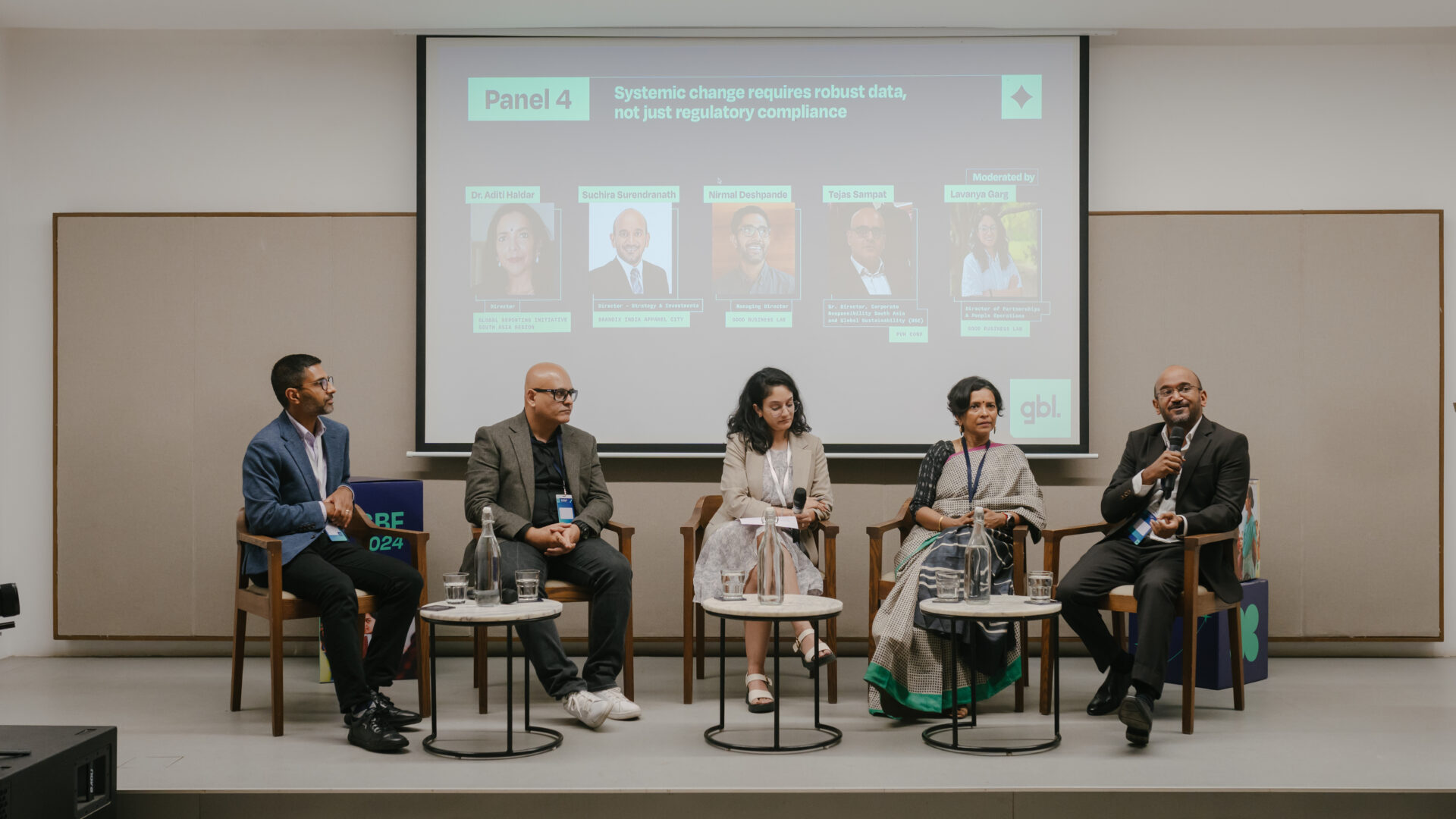
- Dr. Aditi Haldar | Global Reporting Initiative
- Suchira Surendranath | Brandix India Apparel City – https://x.com/susurens
- Nirmal Deshpande | Good Business Lab
- Tejas Sampat | PVH
Moderated by Lavanya Garg, Director of Partnerships & People Operations, Good Business Lab.
- The panel discussed the crucial role of data in advancing sustainability goals and meeting regulatory demands. It emphasized the importance of robust data in capturing the stories behind metrics and driving meaningful change.
- The panel also highlighted the need for a common ESG reporting framework, particularly for companies looking to list internationally.
- Tools like Inache were identified as valuable for meeting sustainability requirements, providing insights, and ensuring compliance with emerging regulations like Human Rights Due Diligence (HRDD).
Some snapshots from the Conference :
Watch the recording of the event below:
The conference reflected the immense potential for aligning business success with positive social impact. We’re eager to build on this momentum and transform these insights into action.
Have an idea or are interested in collaboration? We’d love to hear from you. Write to us at – info@goodbusinesslab.org
Visit our official Good Business Forum website for latest updates and details on future events!

